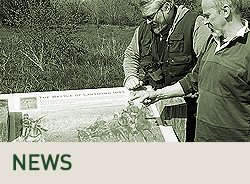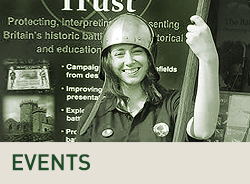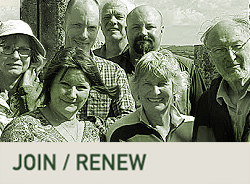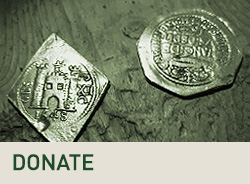Account from Ailred
‘...King [David] gathered together his earls and the highest nobles of his realm,and began to discuss with them the array of battle. And it pleased the greater number that all the armed men, knights and archers whom they had should go before the rest of the army, so that armed men should attack armed men, and knights engage with knights, and arrows resist arrows.
The Galwegians [men of Galloway] opposed this, saying that it was their right to fill the front line, to make the first attack upon the enemy, to arouse by their courage the rest of the army. The others said it was dangerous if at the first assault unarmed men met armed men; for if the first rank sustained not the brunt of battle but yielded to flight the courage of even the brave would be readily dispelled.
Nonetheless the Galwegians persisted, demanding that their right be granted to them. 'For why art thou fearful, O King,' said they; 'and why dost thou so greatly dread those iron tunics which thou seest far off? We surely have iron sides, a breast of bronze, a mind void of fear; and our feet have never known flight, nor our backs a wound. What gain were their hauberks to the Gauls at Clitheroe? Did not these men unarmed, as they say, compel them to throw away their hauberks, to forget their helmets, to leave behind their shields? Let then your prudence see, O king, what it is to have confidence in these, which in a strait are more burden than defence. We gained at Clitheroe the victory over mail-clad men: we today shall use as shield the valour of our minds, and vanquish these with spears.'
After this was said, when the King seemed rather to incline to the counsels of his knights, Malisse, earl of Strathearn, was greatly wroth, and said: 'Why is it, O King, that thou reliest rather upon the will of Gauls, since none of them with their arms today will advance before me, unarmed, in the battle?' And Alan de Percy, base-born son of the great Alan - a most vigorous knight, and in military matters highly distinguished - took these words ill; and turning to the earl he said, 'A great word hast thou spoken, and one which for thy life thou canst not make good this day.'
Then the king, restraining both, lest a disturbance should suddenly arise out of this altercation, yielded to the will of the Galwegians.
The second line the King's son [Prince Henry] arranged with great wisdom; with himself the knights and archers, adding to their number the Cumbrians and Teviotdalesmen ... The men of Lothian formed the third rank, with the islanders and the men of Lorne. The King kept in his own line the Scots and Moravians; several also of the English and French knights he appointed as his bodyguard. And thus was the northern army arrayed.’
‘...The southerns, since they were few, very wisely massed into one column. For the most vigorous knights were placed in the first front, and the lancers and archers so distributed through them that they were protected by the arms of the knights, and could with equal vigour and security either attack the enemy or receive his attack. But the nobles who were of a maturer age were arrayed (that they might support the others) around the royal banner, some being placed higher than the rest upon the machine itself.
Shield was joined to shield, side pressed to side: lances were raised with pennons unfurled, hauberks glittered in the brilliance of the sun; priests, white-clad in their sacred robes, went around the army with crosses and relics of the saints, and most becomingly fortified the people with speech as well as prayer.’
'Earth trembled, heaven groaned; the mountains and hills around returned the echo'.
‘And the column of Galwegians after their custom gave vent thrice to a yell of horrible sound, and attacked the southerns in such an onslaught that they compelled the first spearmen to forsake their post; but they were driven off again by the strength of the knights, and [the spearmen] recovered their courage and strength against the foe.
And when the frailty of the Scottish lances was mocked by the denseness of iron and wood they drew their swords and attempted to contend at close quarters. But the southern flies swarmed forth from the caves of their quivers, and flew like closest rain; and irksomely attacking the opponents' breasts, faces and eyes, very greatly impeded their attack. Like a hedgehog with its quills, so would you see a Galwegian bristling all round with arrows, and nonetheless brandishing his sword and in blind madness rushing forward now smite a foe, now lash the air with useless strokes.
‘Struck with panic all the rear were on the point of melting into flight, when the noble youth, king [David's] son, came up with his line and hurled himself, fierce as a lion, upon the opposing wing; and after scattering that part of the southern army like a spider's web, slaying all who opposed him advanced beyond the royal banner. And thinking that the rest of the army would follow him, to remove from the foe their refuge in flight he attacked those stationed with the horses, routed and dispersed them, and compelled them to flee as far as two furlongs. At this wonderful onslaught therefore the unarmed folk fled in terror.
But by the fiction of a certain prudent man, who raised aloft the head of one of the killed and cried that the King was slain, they were brought back and attacked their opponents more eagerly than ever.
Then the Galwegians could sustain no longer the shower of arrows, the swords of the knights; and took to flight after two of their leaders had been slain, Ulgric and Donald. Moreover the column of the men of Lothian scarcely awaited the first attack, but immediately dispersed.
Then they who had fled saw the royal banner retiring (for it was blazoned in the likeness of a dragon, and easily recognised) and knew that the king had not fallen but was in retreat. And they returned to him and formed a column terrible to their pursuers.
Meanwhile that pride of youths, glory of knights, joy of old men, King [David's} son, looked back and saw that he was left with a few followers in the midst of the foe; and turning to one of his comrades he smiled and said, 'We have done what we could, and have surely conquered in so far as is in our power. Now there is need of resourcefulness no less than of valour. And nought else is a surer mark of a steadfast mind than not to be downcast in adversity; and when thou hast not strength thou mayest overcome the enemy by stratagem. Therefore throw aside the banners by which we are marked out from the others, and let us mix with the enemy as though we pursued with them, until we outstrip them all and come as soon as may be to my father's column, which I see afar off yielding to necessity, but continuing still in its strength’





